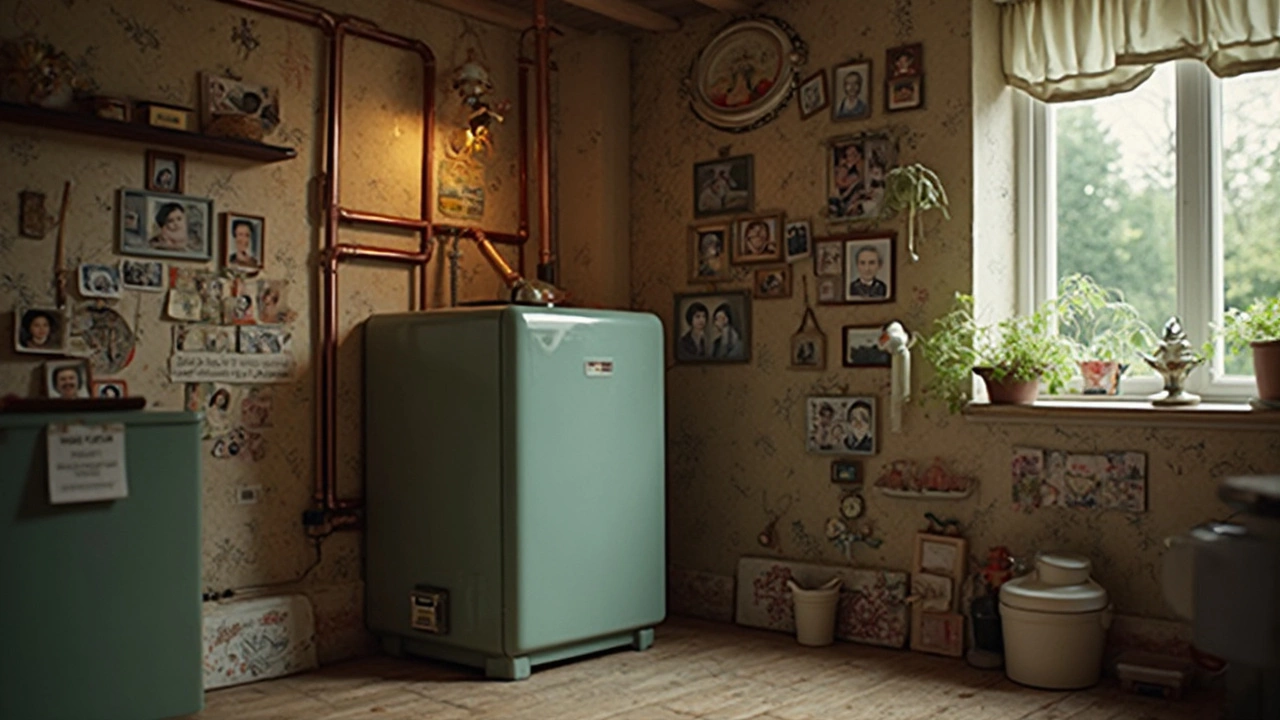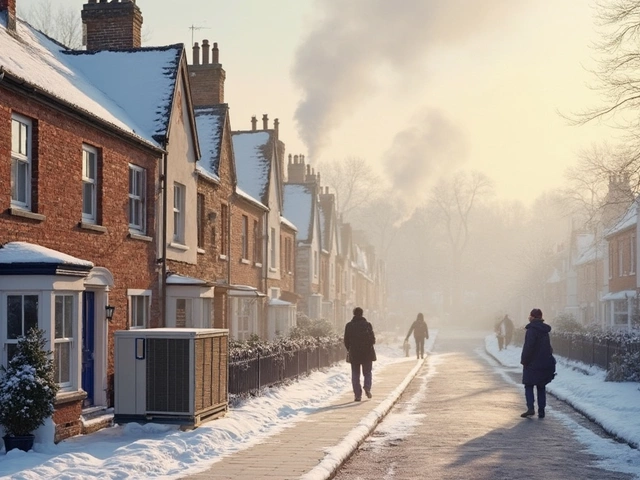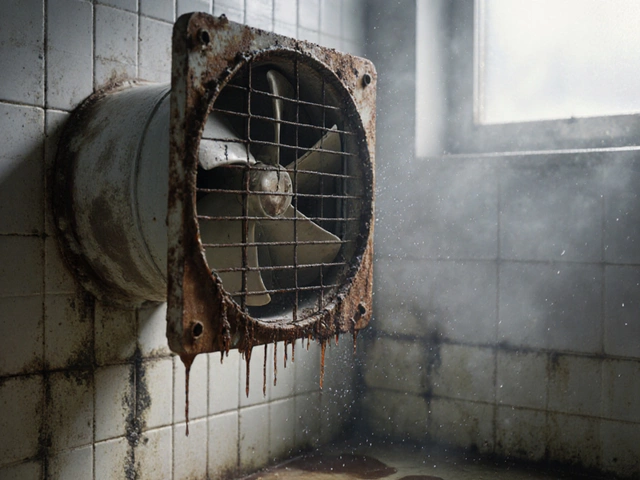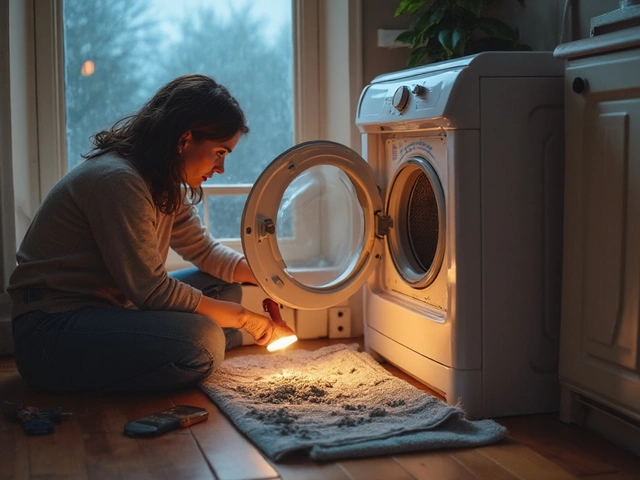In the world of home appliances, the boiler holds a special place. It's the silent workhorse running in the background, keeping showers warm and homes toasty. But here's a wild thought that shakes up a room full of plumbers—can a boiler really clock up 50 years of service? That’s longer than the average Aussie marriage, and about as stubborn. It sounds improbable in today's throwaway culture, where tech gets swapped out every five years. Yet, across older homes in pockets of England, Scotland, or even the older suburbs here in Brisbane, there are boilers older than their owners. So how do they survive the march of decades? And what dirty little secrets keep them ticking when newer models break down just after their warranty dies? Let's get our hands a bit greasy and dig into the underbelly of the boiler world to find out.
The Anatomy of Boiler Longevity: What Keeps Them Going?
Sometimes you hear an old plumber mutter, “They don’t make ‘em like they used to.” There's some truth behind the cliché, especially with pre-1980s boilers. Back then, thick cast iron, sturdy copper, and few electronics meant less to break. Today, top-of-the-range boilers can run at 92% efficiency, but their compact design comes with more sensors and parts working overtime. The result? More things that can fail once those microchips fry in the wet, steamy environment of a utility closet.
One of the biggest factors for any heating system’s lifespan is how it was made. Take boilers from the '60s and '70s—they were simple beasts, sometimes double or triple the weight of the modern box on your kitchen wall. A 1970s Baxi back boiler, for instance, happily keeps humming along with annual servicing and the occasional part swap. These units could swallow up to 20 litres of water and held up against corrosion, thanks to generous use of cast iron and enamel. The story's different if you're dealing with aluminium heat exchangers, fragile seals, or plastic internals: they just don't compare in toughness.
Mistakenly, people blame the tech, but water quality is a sneaky culprit. Hard water leaves scale, soft water eats metal, and dirty water from corroded pipes acts like sandpaper churned inside a kettle. Every spot of lime or sludge knocks years off a boiler's life. Smart homeowners started filtering, treating, and even flushing the system regularly. There's even data to back this up—British Gas reports that regular maintenance, including annual checks and timely descaling, can double a boiler’s expected life, stretching a midrange unit past 25 years. Of course, that depends on the quality of installation. A dodgy pipe fitting or poorly sealed flue spells disaster much sooner.
The most dramatic stories come from those who treat boilers like classic cars: polished, repaired, and used carefully. There’s that famous Viessmann cast iron unit in an old Sydney manor still in action since 1972. I’ve seen hydronic set-ups from the late ‘60s, still heating Brisbane villas, with little more than an occasional valve swap and paint job. You’d never know, thanks to polished brass fittings catching the light in the hallway. Of course, not everyone has the patience—or budget—for heritage-level care.
Still, if you buy a boiler today and baby it like your granddad's Holden, could it last 50 years? The odds have shifted. New condensing technology runs hotter and recycles exhaust for high efficiency, but it puts stress on slim aluminium parts. Even with perfect water and annual exams, you’re bumping up against new wear-and-tear factors the old cast iron tanks never had to worry about. But whether your boiler survives half a century or fizzles out in 12 years depends as much on how you treat it as which brand you picked off the shelf.
| Boiler Make | Era/Model | Material | Known Lifespan | Special Maintenance Required? |
|---|---|---|---|---|
| Baxi | Back Boiler (1970s) | Cast Iron | 40–55 years | Regular descaling, seal replacement |
| Vaillant | ecoTEC (Modern) | Aluminium, Plastic | 10–15 years | Water treatment, electronic checks |
| Worcester | Greenstar (2000s) | Stainless Steel | 15–20 years | Flue inspection, filter cleaning |
| Viessmann | Vitola (Pre-1985) | Cast Iron | 35–50 years | Minimal, occasional part swaps |
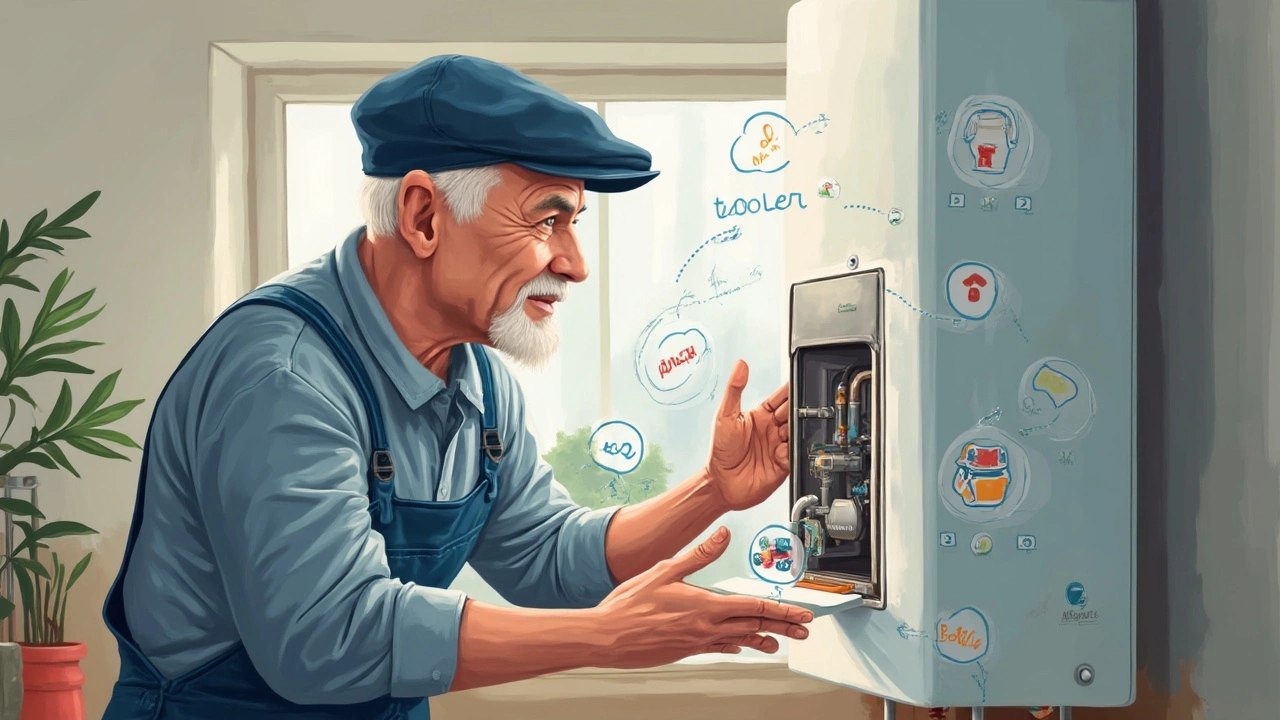
What Real-World Data and Stories Tell Us About Boiler Lifespans
Getting past myths and marketing fluff, we need to look at the actual numbers and stories from households and repair technicians. The average lifespan quoted for a boiler sits stubbornly between 10 and 15 years, according to the Energy Saving Trust in the UK. That’s the official line used by most installers—and, to be blunt, it helps move more units. But peer behind the curtain, and the picture is a bit more complicated.
In heritage homes across Europe, and even in some older neighborhoods in Sydney and Melbourne, you’ll stumble across boilers from the ‘70s still quietly cranking out heat. Property manager Jim Corrigan in Melbourne once showed me a photo of a Potterton Kingfisher boiler, original to a townhome built in 1975, that was still in use as of June 2023—an impressive 48 years and counting. These survivors tend to share some traits: simple design, generous maintenance, and systems installed during eras when planned obsolescence wasn’t yet a corporate strategy.
The flip side pops up with newer condensing models. Techs often report breakdowns within ten years—sometimes even sooner—because seals perish, sensors fail from moisture, or sludge blocks up narrow heat exchangers. Once replacement parts stop being made (usually within 10–15 years for electronics-heavy models), a perfectly functional boiler becomes a headache. It's a classic story: an $800 stainless steel assembly gets discontinued, and suddenly the only option is a new boiler—even though the rest of the system’s pristine. The disposable mindset, whether you like it or not, is baked in these days.
Even then, there are a handful of jaw-dropping exceptions. In an Ipswich older home, a retired engineer runs a 54-year-old Ideal Mexico cast-iron boiler that's on its original ignition system. He swears by monthly pressure checks and annual system flushes. When asked about his secret, he’ll laugh—“Never let the thing run dry, never let muck build up, and don’t let lazy plumbers tinker.” I met another bloke here in Brisbane whose father-in-law hand-painted the boiler’s steel casing every three years, like waxing a vintage Mustang. Silly? Maybe. Effective? The numbers speak for themselves.
The best data point is probably large buildings in commercial use. Hospitals, schools, and universities install industrial-grade boilers, some custom-built in the ‘60s with cast iron and copper. Many are still running after 50+ years with regular attention and part changes. Take the University of Queensland’s main plant: staff told me in 2021 they still had original hydronic boilers from the late ‘70s, now relegated to backup duty, but perfectly operable. The catch? Industrial boilers are coddled by teams of specialists. Your average home boiler, meanwhile, fights dust, interruptions, dirty water, and—let's be real—owners who skip service for years.
If you're wondering how you'd even know your system is near legendary status, listen for the telltale signs: uneven heating, strange metallic noises, or pilot lights that flicker out more often than a backyard bonfire. These are clues things are starting to wear thin. But if your boiler's giving consistent hot water year after year, and you're not living on first-name terms with your repair guy, you might be set for the long haul.
| Setting | Common Boiler Age | Lifespan Factors | Typical Maintenance |
|---|---|---|---|
| Heritage Home | 30–50 years | High-quality materials, regular care | Annual checks, water treatment |
| Modern Suburbia | 10–18 years | More electronics, tighter parts | Sensor/calibration checks, filter cleaning |
| Commercial Building | 30–60 years | Industrial build, constant monitoring | Full-time maintenance, part replacement |
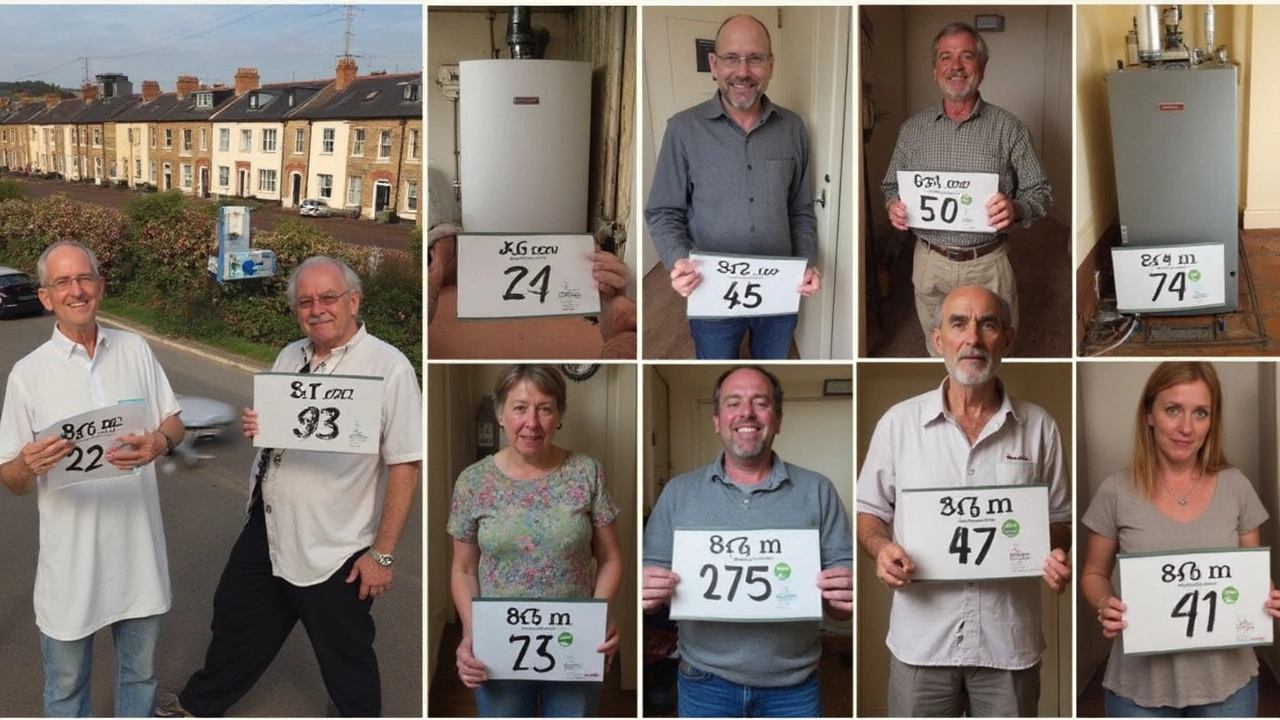
Making a Boiler Last Decades: Pro Tips and Watchouts
The million-dollar question: if you want a boiler to go the distance, what’s the magic formula? Here’s where the habits of stubborn old-timers pay off. The first rule is unapologetic maintenance. Forget yearly checkups—think of your boiler as a pet that needs feeding and grooming. Descale the system every year if you live in a hard-water zone. Some people keep a logbook, jotting down pressures and temperature spikes like treasure maps. Overkill? Maybe. But worth it when you're sipping coffee by a 40-year-old system.
Second, don’t ignore odd noises or drops in performance. A kettle-like churning sound points to scale. Slow heat-up times mean sediment in the system, and knocks or clanks signal internal stress. Catch and fix those problems before they snowball. Get a magnetic filter fitted on pipework, especially with modern aluminium boilers. These little devices can trap iron particles before they erode your system.
Another critical tip: use your heating system regularly. Ironically, boilers that sit dormant often fail quicker. Moisture gathers, rust sets in, and seals dry out. Even in subtropical Brisbane, it's smart to run the hot water and heating once a month, year-round, to keep the system lubricated and happy.
Then there's a sneaky factor—ventilation. Boilers stuffed into tight cupboards or surrounded by clutter can cook themselves. Good airflow around the unit keeps components cool and slows down corrosion. Australian standards ask for specific clearances, but if you've boxed your heater in with mops and storage, you're inviting trouble.
Quality parts matter just as much. Always ask for reputable brand replacements and keep receipts. Aftermarket parts might be tempting, but a dodgy pump or cheap gasket can sabotage decades of reliable service. Also, consider getting your local plumber to futureproof with isolation valves and easy-access components. That way, small fixes won’t turn into thousand-dollar headaches if you ever need a quick swap. The British Heating and Hotwater Industry Council (HHIC) strongly recommends replacing expansion vessels and safety valves every 10 years, or sooner if your area has dodgy water. Following a checklist like this improves your odds dramatically:
- Annual professional servicing
- Magnetic filter installation and regular cleaning
- Prompt repair of leaks and gauge errors
- Cleaning and painting exposed pipes to prevent rust
- Documenting issues and repairs in a “boiler diary”
- Running the system at least monthly year-round
If you’re buying a new boiler with lifelong dreams, pay special attention to materials and aftercare support. Stainless steel heat exchangers tend to outlast aluminium, especially in Australian water conditions. Stick with brands that commit to carrying spares for 15–20 years—that’s a real litmus test for lasting power in a world where product support dries up fast.
Here’s a final blunt fact: most boilers don’t die a natural death. They’re either pushed out by a forced upgrade, reshuffle during a reno, or the key parts go out of production. But if you want to defy the odds, follow the lead of those old-school engineers—treat your boiler with respect, keep a sharp ear out for trouble, and don’t cheat on your maintenance. A boiler lifespan stretching out over half a century isn’t pure fiction—it just takes grit, vigilance, and a sprinkle of stubborn optimism.
